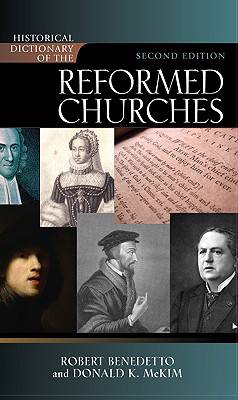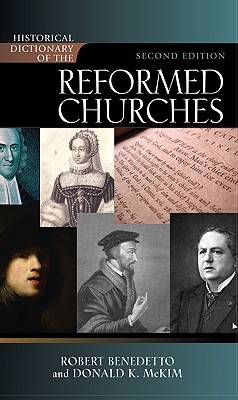
- Afhalen na 1 uur in een winkel met voorraad
- Gratis thuislevering in België vanaf € 30
- Ruim aanbod met 7 miljoen producten
- Afhalen na 1 uur in een winkel met voorraad
- Gratis thuislevering in België vanaf € 30
- Ruim aanbod met 7 miljoen producten
Zoeken
€ 351,45
+ 702 punten
Uitvoering
Omschrijving
As its name implies, the Reformed tradition grew out of the 16th century Protestant Reformation. The Reformed churches consider themselves to be the Catholic Church reformed. The movement originated in the reform efforts of Huldrych Zwingli (1484-1531) of Zurich and John Calvin (1509-1564) of Geneva. Although the Reformed movement was dependent upon many Protestant leaders, it was Calvin's tireless work as a writer, preacher, teacher, and social and ecclesiastical reformer that provided a substantial body of literature and an ethos from which the Reformed tradition grew. Today, the Reformed churches are a multicultural, multiethnic, and multinational phenomenon. The second edition of the Historical Dictionary of the Reformed Churches contains information on the major personalities, events, facts, movements, and beliefs of the Reformed churches. This is done through a list of acronyms and abbreviations, a chronology, an introductory essay, appendixes, a bibliography, and over 800 cross-referenced dictionary entries on leaders, personalities, events, facts, movements, and beliefs of the Reformed churches.
Specificaties
Betrokkenen
- Auteur(s):
- Uitgeverij:
Inhoud
- Aantal bladzijden:
- 790
- Taal:
- Engels
- Reeks:
- Reeksnummer:
- nr. 99
Eigenschappen
- Productcode (EAN):
- 9780810858077
- Verschijningsdatum:
- 6/10/2009
- Uitvoering:
- Hardcover
- Formaat:
- Ongenaaid / garenloos gebonden
- Afmetingen:
- 145 mm x 218 mm
- Gewicht:
- 1156 g

Alleen bij Standaard Boekhandel
+ 702 punten op je klantenkaart van Standaard Boekhandel
Beoordelingen
We publiceren alleen reviews die voldoen aan de voorwaarden voor reviews. Bekijk onze voorwaarden voor reviews.











